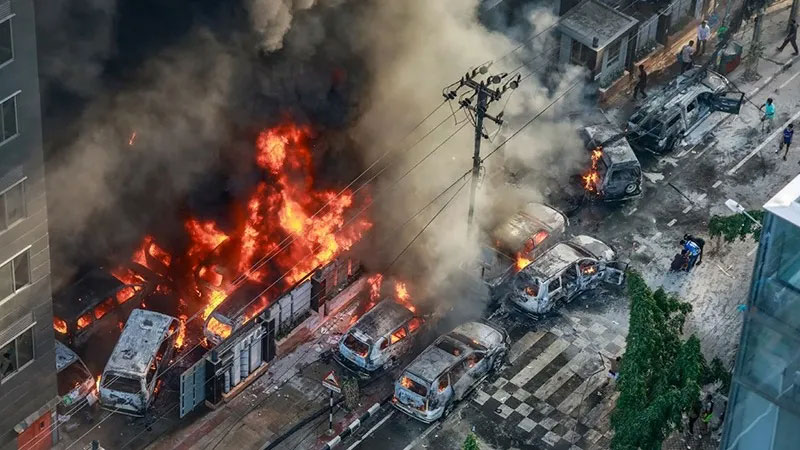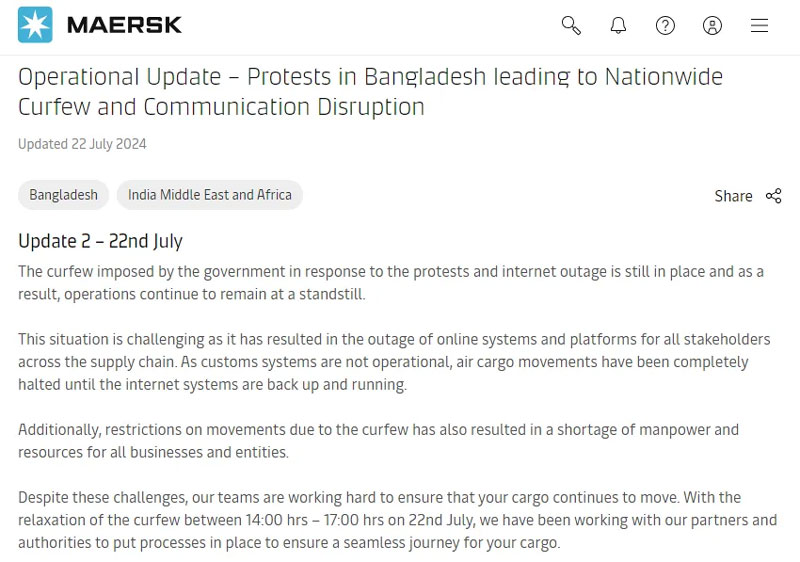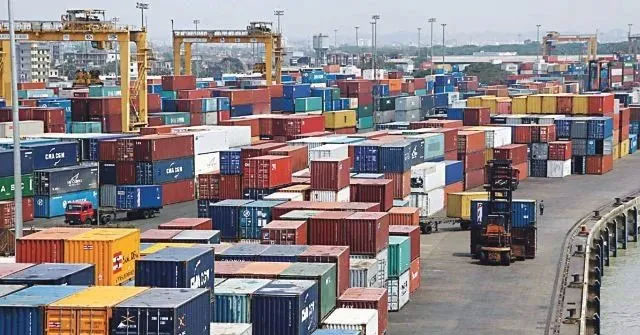

Maersk has issued an emergency warning as violence continues across Bangladesh
The ongoing protests across Bangladesh have entered their fourth week and show no sign of subsiding. The student protests, sparked by dissatisfaction with the government's reinstatement of a quota system for civil servants, quickly spread and turned into nationwide violence. According to AFP reported on July 22, the conflict has killed at least 163 people, exacerbating social unrest and unrest.
In this context, Bangladesh's freight logistics system suffered a severe shock and fell into chaos. In terms of port transport, although the cargo handling work is still barely maintained, the road blockade has resulted in "no boxes can be shipped out of the port area", and the normal flow of goods is not possible. At the same time, the port system was paralyzed by the impact, and the shortage of personnel further aggravated the port congestion. As more ships continue to arrive, port congestion is expected to continue to worsen, and customs clearance and cargo delivery are facing unprecedented challenges.
In addition, air cargo has not been spared. Due to the failure of the customs system to function properly, air cargo transport has been completely halted. Coupled with customs clearance and freight forwarders strike action, the air transport industry is even worse, in trouble.
On July 22, the Maersk website updated its alert information on the current situation in Bangladesh. Maersk's operations in Bangladesh continue to be at a standstill as a result of a curfew imposed by the government due to ongoing protests across the country and Internet outages.
At the same time, manpower at the port is extremely limited, and the port's online system is still down, unable to conduct new online processing or approve updates. Import master manifests (IGM) can only be submitted manually by teams to the Port Authority, but approval or rejection is highly erratic due to inadequate staffing.

In this context, Bangladesh's freight logistics system suffered a severe shock and fell into chaos. In terms of port transport, although the cargo handling work is still barely maintained, the road blockade has resulted in "no boxes can be shipped out of the port area", and the normal flow of goods is not possible. At the same time, the port system was paralyzed by the impact, and the shortage of personnel further aggravated the port congestion. As more ships continue to arrive, port congestion is expected to continue to worsen, and customs clearance and cargo delivery are facing unprecedented challenges.
In addition, air cargo has not been spared. Due to the failure of the customs system to function properly, air cargo transport has been completely halted. Coupled with customs clearance and freight forwarders strike action, the air transport industry is even worse, in trouble.
On July 22, the Maersk website updated its alert information on the current situation in Bangladesh. Maersk's operations in Bangladesh continue to be at a standstill as a result of a curfew imposed by the government due to ongoing protests across the country and Internet outages.

At the same time, manpower at the port is extremely limited, and the port's online system is still down, unable to conduct new online processing or approve updates. Import master manifests (IGM) can only be submitted manually by teams to the Port Authority, but approval or rejection is highly erratic due to inadequate staffing.






